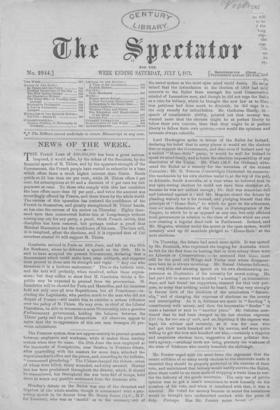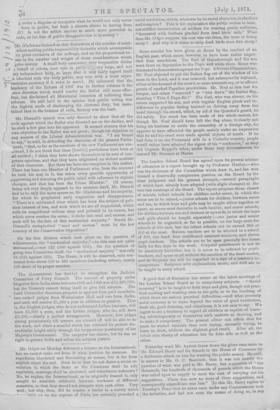Mr. Forster urged with his usual force the argument that
the recent addition of so many needy electors to the electorate made it essential they should be properly protected in the exercise of their vote, and maintained that bribery would hardly survive the Ballot, since there could be no surer mode of stopping a trade than to ren- der the delivery of the goods uncertain. The only use of publics opinion was to get a man's conscience to work honestly on the question of his vote, and when it interfered with that, it was a mischief. He voted for secrecy because in secret the conscience would be brought into undisturbed contact with the point of duty. Perhaps. Has Mr. Forster never heeled es • g under a disguise or incognito what he would not only never ▪ done in public, but feels a sincere shame in having done ? Is not the selfish motive as much more powerful in • cud°, as the fear of public disapprobation is in society ?



































 Previous page
Previous page